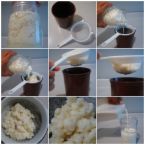Kefir enjoys a rich tradition of health claims. In the former Soviet Union, it is used in hospitals and sanatoria for a variety of conditions, including metabolic disorders, atherosclerosis, and allergic disease. It has even been used for the treatment of tuberculosis, cancer, and gastrointestinal disorders when no modern medical treatment was available. Its consumption has also been associated with longevity in Caucasus. Various scientists have observed digestive benefits of kefir, but controlled studies have yet to confirm their empirical findings. Various research teams around the world have reported encouraging results, but several methodological difficulties still need to be resolved. Most studies to date have been performed in vitro or using animal models, and human studies are not available. Further, the effects of kefir grains or their isolates are often studied, rather than the product kefir, and there is no evidence that the observed effects would occur using the drink itself. Also, kefir products vary significantly according to the composition of the grains used and even according to the region in which it is made, and therefore specific effects may not be demonstrated in all kefirs. Given these caveat, a variety of health benefits are being investigated. Table 3 presents recent studies using kefir products. Several studies have investigated the antitumor activity of kefir and of kefir grains . Specific cultures isolated from kefir were also shown to bind to mutagenic substances such as indole and imidazole. Immune system stimulation with kefir and with sphingomyelin isolated from the lipids of kefir have been demonstrated in both in vitro and in vivo studies. Kefir possesses antimicrobial activity in vitro against a wide variety of gram-positive and gram-negative bacteria, and against some fungi. In Zacconi et al.ís recent study, the antagonistic effects of kefir against Salmonella kedougou were attributed to the complexity and vitality of the kefir microflora. De Vrese et al . demonstrated that fresh, but not heat treated, disintegrated kefir grains suspended in kefir directly enhanced intestinal lactose digestion in minipigs. This effect was attributed to microbial b-galactosidase activity of kefir. The above studies provide encouraging results, but much more research is necessary in order to demonstrate similar effects using kefir in humans. Further, a standardized, well-defined product must be used in order to provide useful information.
Sunday, March 22, 2009
Subscribe to:
Post Comments (Atom)





No comments:
Post a Comment